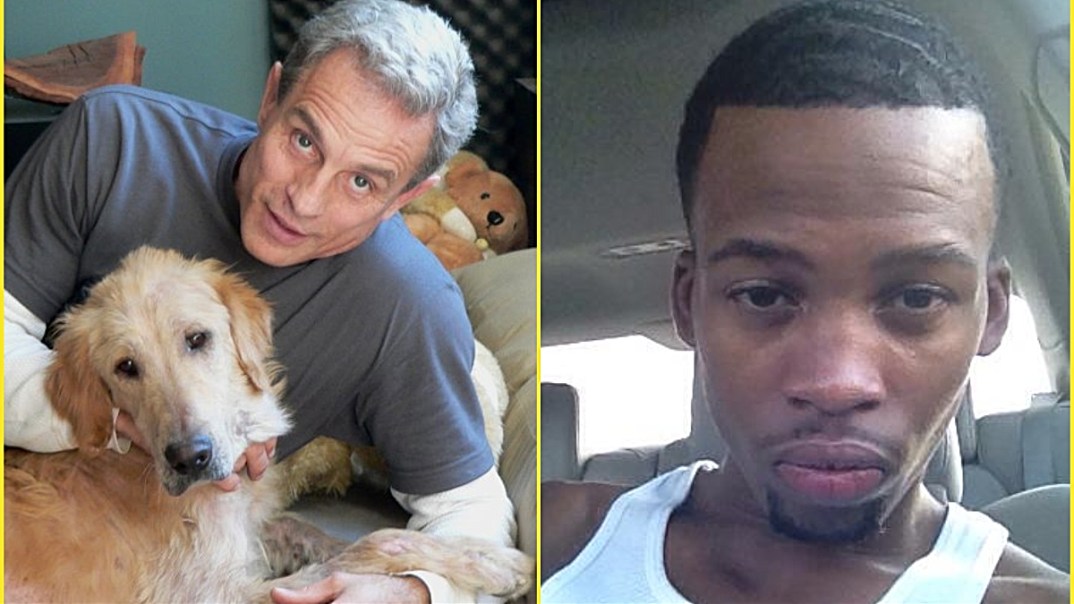When all Black lives don’t matter: Who’s fighting for Gemmel Moore?
A challenge to the Black community to become better advocates for us all.
Gemmel Moore was died after Ed Buck gave him drugs for sex, now we're asking for outrage but the Black community remains silent.

“No charges will be filed…”That is the only part of an article I recently read about the death of Gemmel Moore that I can remember. It was the only thing that mattered when the L.A. prosecutor decided that he would not charge wealthy Democratic donor, Ed Buck with Gemmel’s death.
Gemmel was a young, Black gay man who died of an overdose after Buck injected him with Methamphetamines. The media quickly painted Gemmel as a sexually-deviant, Black queer escort/prostitute, dehumanizing him in comparison to Buck, who is rich and white, proving that Queer folks have become as disposable as yesterday’s news.
Gemmel’s story is not an exception to the rule. Our society does not allow for communal mourning or fighting for Black lives that are deemed less than human. These members of our community continue to be taken from us, often queer or some other intersected marginalized group (woman, poor, etc.), struggling for an acknowledgment that would guarantee protection for lives that aren’t cishet or deemed “acceptable.” Gemmel’s story is part of a pattern of violence that keeps happening towards the Black queer community and is seemingly increasing with little to no action taken to protect us.
READ MORE: Here’s why John David Washington doesn’t want to be known as Denzel’s sonmp
These past few months, we have seen the murders of 16 Black transgender women—with many thinking that there is a serial killer targeting them in the Jacksonville, Florida area. Black transgender people now have a life expectancy of 35 years of age, the lowest of any major demographic in the United States. The media often mis-genders them, using birth names rather than chosen names and depicts them as men dressed like women—devaluing their worth and placing blame on the victim.
Even when they do get the story right, the Black cisgendered community is not rallying to their defense. There are no marches, no calls for justice, no buttons to wear as reminders or cries from the top Black social media pundits and organizations about this demographic and the violence they face—or better yet, any death in the Black queer community.
Remember Giovanni Melton? He was a 15-year old, Black gay boy who was murdered by his own father last November. A Black father murdered his child while making the statement, “I’d rather have a dead son than a gay son.” Giovanni’s name made the news for a few days, but then nothing. No bridging the gap between homophobia and the church or homophobia and hip hop, which absolutely plays a role in the violence of queer people. Just a few tweets, a few stories, and then gone and forgotten.
READ MORE: Gang member who killed sister of Serena and Venus Williams released from prison for ‘good behavior’
Mourning in our community can be a double-edged sword. The death of slain rapper XXXtentacion served as a reminder of the work we still needs to do when having nuanced conversations around grieving Black victims who were also Black abusers. There is an expectation for queer and other marginalized people to defend their Blackness at all costs, even if that means never being allowed to challenge and critique our abusers. We are often told “now is not the time” when these conversations come up in a Black abuser’s death—conversations we are typically demonized for initiating. The assumption that Black queer people should mourn and grieve those who have done us harm leaves us with the inability to challenge the Black community about being better advocates for our safety.
Why is it so much easier for our community to rally around the murders of Black victims of police brutality like Eric Garner, Mike Brown, and Sandra Bland? Why is it somehow easier to fight for the life of Nia Wilson, defend the honor Chikesia Clemons, and find ways to be loud and push back against white supremacy. It is much harder, however, to deal with our own internalized issues around homophobia—much of which was created by our assimilation towards white supremacy, which taught us to separate our worth based on gender and sex and other factors.
To be clear, this about more than just about a march, a vigil or some talking points from some a few talking heads. This is about a challenge to our community to break the pathology of violence we push upon one another based on principles of white supremacy. A “come to Jesus” moment, if you will, where we must speak up when people are being murdered at the intersection of Blackness and Queerness—especially when those murders are being committed by our own.
READ MORE: Cheerleaders with a collar: An open letter to the Black preachers stunting for Donald Tru
Black queer people have always stood on the front lines of racial equality and deserve to have that reciprocated, whether you accept us or not. There is no Blackness without a queerness. Anyone who thinks so, doesn’t want liberation. They want power. No one is free unless we all can be free.
The time is now to acknowledge our existence and prove that our Blackness is indeed worth protecting.
George M. Johnson is a Black queer journalist and activist located in the NYC area. He has written for TheRoot, ET, HIVequal, TeenVogue, NBC News and several other major publications. Follow him on Facebook, Twitter, or Instagram.
